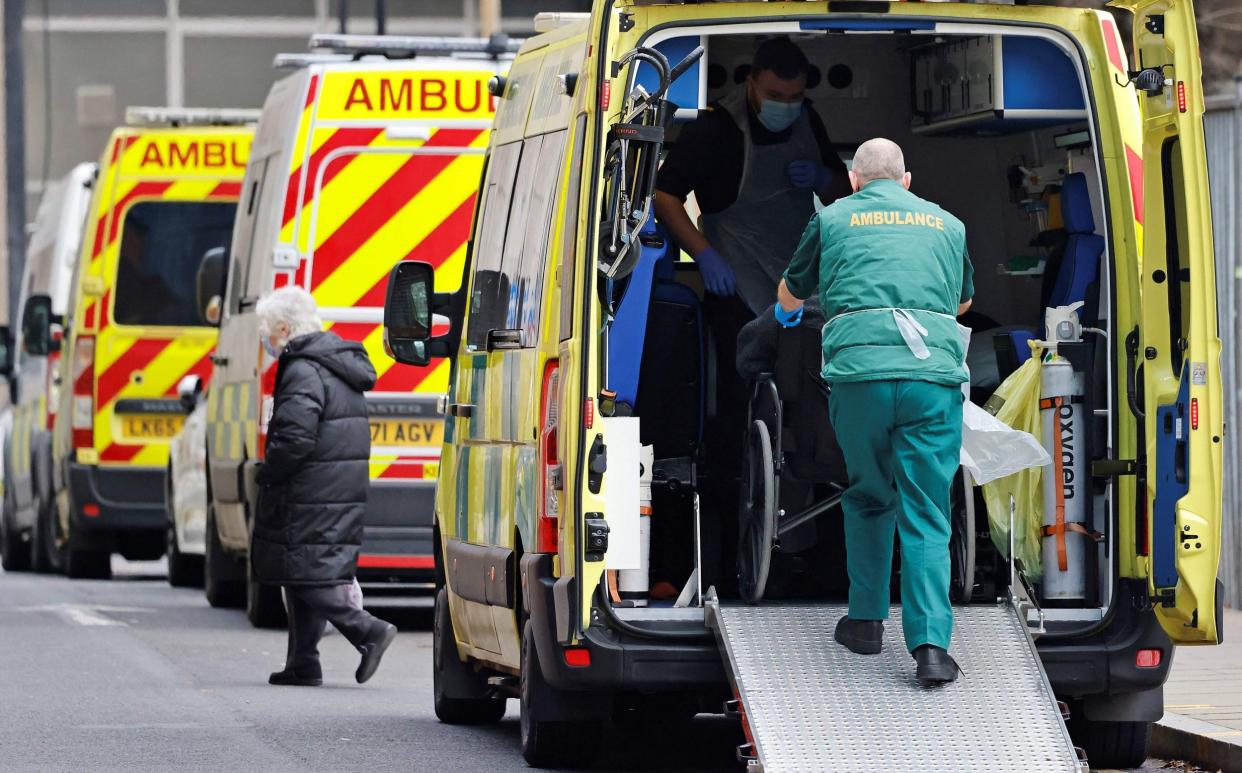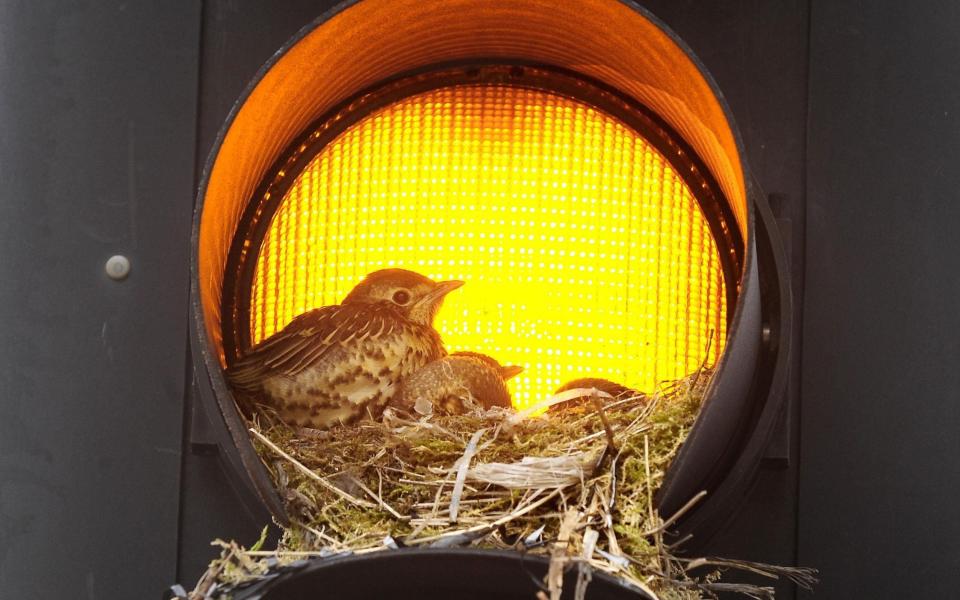Letters: The big new change is that the NHS can no longer guarantee life-saving help in an emergency

SIR – Recently a 38-year-old family man had a severe reaction to a bee sting at our home. His face swelled, he could no longer breathe through his nose and his throat was tightening.
The 999 operator, after a lengthy discussion with his manager, told us the wait would be at least eight hours. My wife (a retired GP) and I confirmed that this was a life-threatening emergency. The operator apologised and suggested we transport the victim to Accident and Emergency.
Rather than risk A&E – seven miles in rush-hour traffic – I drove him to our local health centre as my wife phoned ahead. He got the vital adrenaline injection in time.
The NHS always had its flaws but until recently the assumption was that its response in an emergency could be relied upon. Our experience supports growing evidence that this is no longer so; a frightening paradigm shift. If this milestone does not encourage appropriate action, what will?
Brian Simpson FRCS
Dinas Powys, Glamorgan
SIR – NHS nursing staff were handed pay deals last week under false pretences. Pay rises were sold by ministers as the best they could offer. The reality is that, after a decade of real-term pay cuts with tens of thousands of nurses missing from services and extreme pressure, safe care is fundamentally compromised.
Most worrying is the assertion that anyone has to choose between patient care or credible NHS pay. There are no services without skilled professionals.
The NHS isn’t buildings, or beds. It’s people. We know that the public has always shown their respect for nursing staff, and last week a YouGov poll showed that 60 per cent support nursing staff taking industrial action.
We will ballot members on such action to make those in power see the strength of feeling at these shameful pay deals. We showed our strength by decisive action in Northern Ireland and we will not be ignored again.
Carol Popplestone
Chair of Council, Royal College of Nursing, London W1
SIR – If the NHS spends £10,000 per household, could I please have my share back so I can go private?
Victoria Cockburn
Bishop’s Castle, Shropshire
SIR – The best performing NHS Trusts all serve prosperous areas. It would be reasonable to assume a higher proportion in those areas use private-sector hospitals and medical care. It is thus obvious that this is a major factor in reducing pressure on NHS trusts.
Advice to our future prime minister: allow private care to be tax deductible.
Tom Sheward
Marlborough, Wiltshire
SIR – Tim Knox’s Civitas report on the UK’s health spending seems to illustrate that, for almost the greatest spend per capita in Europe, we achieve almost the worst outcomes.
Why? An examination of the relative proportions of the numbers of “clinical’” and “administrative” personnel would be helpful. It is widely believed by the public that the large increase in spending in the past decade has been mostly on non-clinical staff, with the added perception that very senior officers have been handed large increases.
Separately, there is little evidence that badly needed investment in modern buildings and equipment is progressing to any great extent.
Let’s have real facts, please.
Sir Peter Innes
Winchester, Hampshire
SIR – Your News Focus, “The NHS is broken”, says that the Queen Elizabeth Hospital Birmingham, which has a regional catchment area the size of Scotland, is the worst performing acute NHS trust in the country.
I visit fortnightly for excellent palliative care and almost each time the published statistics for the previous week before show that around 32,000 outpatients turned up and 5,200 did not. Patients have responsibilities too.
Chris Hodson
Leominster, Herefordshire
Cutting taxes now won’t feed inflation
SIR – The economy of the United Kingdom is struggling. It is suffering from high inflation and weakening domestic demand.
The policy solution necessitates a tighter monetary policy from the Bank of England to control inflation and a looser fiscal stance, focused on targeted tax cuts, to address weakening growth.
Thus, timely, targeted and fully affordable tax cuts are needed.
Given the nature of our inflation shock – driven by global supply-side pressures and previously lax monetary policy – targeted tax cuts will not be inflationary. The domestic economy is not overheating.
They are affordable too. At the time of the Spring Statement there was fiscal space that was not used, and since then higher inflation has boosted tax revenues.
There is a need for targeted tax cuts to happen immediately, while further fully affordable measures can be brought forward in a Budget, alongside other options.
Tax cuts are necessary. The United Kingdom is on track for its highest tax burden in 70 years, placing an unbearable strain on households and undermining competitiveness.
Dr Graham Gudgin
Centre For Business Research
University of Cambridge
Julian Jessop
Independent economist
Graeme Leach
Chief Economist, Macronomics Shadow Monetary Policy Committee
Dr Gerard Lyons
Chief Economic Strategist, Netwealth
Douglas McWilliams
Executive Deputy Chairman, Centre for Economic & Business Research
Shanker Singham
Chief Executive, Competere Ltd,
Academic Fellow, Institute of Economic Affairs
Harry Western
Private economic forecaster
Russia’s grain attack
SIR – Hours after signing an agreement to allow Ukraine to get its grain out to the starving world, Russia fired missiles into the port of Odesa, preventing any movement.
At a stroke, Russia has confirmed its disgusting mindset and proved it couldn’t care less about the hungry.
B J Colby
Bristol
SIR – As a retired Merchant Navy captain, I remember that during the Falkland Islands war in 1982 the life insurance policies of seafarers was underwritten by HM Government.
That no war has been declared by Russia will not prevent insurance companies denying claims made by civilian seafarers killed transporting grain from the Ukraine.
The United Nations needs Turkey to allow warships into the Black Sea to ensure the safe passage of ships and crews involved in the humanitarian effort to provide food for the millions who will die if ships are prevented from completing their voyages.
Our Government needs to warn Russia that the murder of any British seafarer undertaking his lawful business will result in an immediate response.
Peter J Newton
Chellaston, Derbyshire
Lambeth spouses
SIR – The “very painful” decision by the Archbishop of Canterbury, the Most Rev Justin Welby, to ban the spouses of gay clergy from attending the Lambeth Conference could be avoided by inviting no spouses at all. Most people are not invited to take a spouse on a work trip.
Catherine Perry
Lincoln
SIR – Archbishop Welby is not head of the Church of England – that is the role of the Queen as Supreme Governor. Nor is he head of the worldwide Anglican Communion. He is primus inter pares, first amongst equals.
R G Inches
Birmingham
Mrs Beeton’s burgers
SIR – “Veal fladeon” (Letters July 23) was included in Mrs Beeton’s original 1861 Book of Household Management.
It appears to come from the French fladéon, which presumably came from the Latin flado, meaning a “flat cake”. But in German fladen is “cow pat”.
Howard Stephens
Burgh St Peter, Norfolk
Dover passport control delays
SIR – To solve the problem at Dover, why not return to the former system of passport control, with French checks carried out in France, so that the chaos caused will be experienced in the country that caused it.
Roy Moore
Ashton-in -Makerfield, Lancashire
SIR – I assume that the delays at Dover are due to the thousands of British tourists with forged passports being turned away at the French checkpoints. Am I correct?
Dr Richard J Barnes
Totland Bay, Isle of Wight
SIR – Typical of the French, to cut off their nose to spite their face.
Trade between countries is of mutual benefit and should be as free flowing as possible. Tourists spend money in the destination country. A proportion of those frustrated by the French inadequacies at Dover will be holidaying in France.
They clearly hate us for leaving the EU, but when EU states act like this, the British decision is understandable.
Douglas Warren
Poole, Dorset
SIR – I wonder how many of those travellers desperate to get to Europe but stuck in jams around Dover voted for Brexit, to take back control.
Benjamin L C Smith
Hedge End, Hampshire
SIR – I have no sympathy for people stuck in queues at Dover trying to get across the Channel to go on holiday.
Why did everyone decide that they must travel on the first day of the school holidays? Schools are closed for weeks, so staggering departure would seem to be a sensible thing to do.
Alan Brown
Medstead, Hampshire
SIR – If only the French were as good at stopping people coming this way.
Stephen Castle
Eastleigh, Hampshire
Change for the worse
SIR – To pay £15.20 for a kebab, I offered a £20 note and 20p.
The girl looked at me puzzled. She turned to her manager who was also perplexed. Eventually he gave me my 20p back and £4.80 change.
If we go cashless, then an inability to deal with money will go hand in hand with it – just as satnavs have bred a generation who can’t read a map and don’t know where they are.
Patrick Smith
Gorleston, Norfolk
The ups and downs of a mobile nesting site

sir – I am a volunteer lock-keeper and have seen grey wagtails nest in the lock gates (Letters, July 23). They seem unfazed by the gates constantly opening and closing or by the vibration when they shut together.
Mike Day
Waverton, Cheshire
SIR – We have an 80mm bore cannon in our garden. In the last few years blue tits, coal tits and great tits have nested in it. Last year white-tailed bumble bees took up residence.
When our first lodgers arrived we had a cat so we put a fence round the cannon. In very hot weather we put wet towels on the cannon to keep it cool.
Rona Taylor
Bristol
Letters to the Editor
We accept letters by post, fax and email only. Please include name, address, work and home telephone numbers.
ADDRESS: 111 Buckingham Palace Road, London, SW1W 0DT
FAX: 020 7931 2878
EMAIL: dtletters@telegraph.co.uk
FOLLOW: Telegraph Letters on Twitter @LettersDesk

 Yahoo News
Yahoo News 
